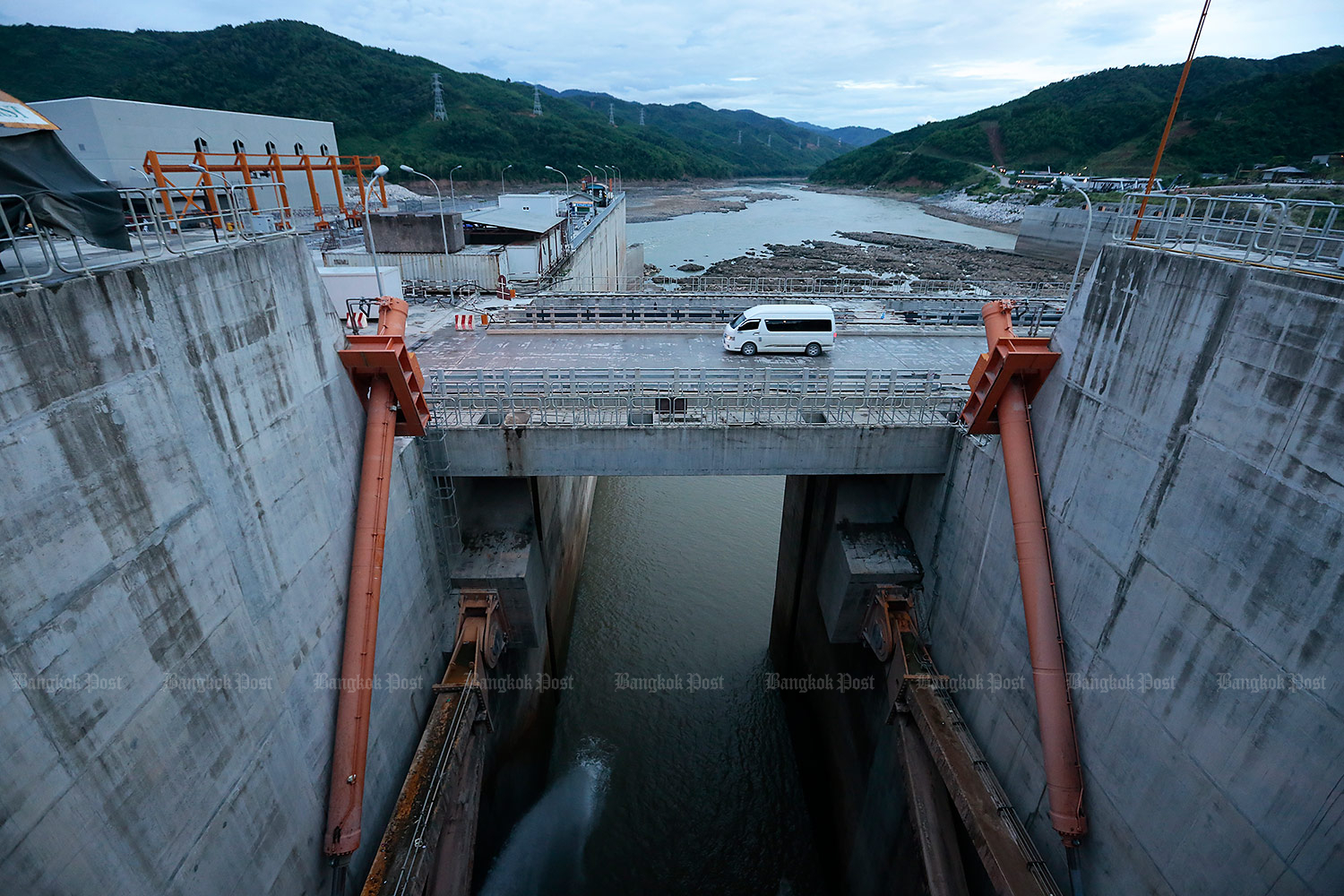
The Supreme Administrative Court yesterday upheld a lower Administrative Court's decision to dismiss a petition against a government contract signed with its Lao counterpart to buy electric power from the Xayaburi Dam.
Led by Niwat Roikaeo, the petitioners are residents of eight provinces, namely Chiang Rai, Loei, Nong Khai, Bueng Kan, Nakhon Phanom, Mukdahan, Amnat Charoen and Ubon Ratchathani, who claim to have been impacted by the power purchase contract.
In their joint petition, the 37 parties accused the Electricity Generating Authority of Thailand (Egat), the Energy Policy and Planning Office (Eppo), the Ministry of Energy and the cabinet of colluding to unlawfully conduct this energy project.
They reasoned that the procurement was unlawful because no assessment of the project's impact on the environment, public health or society was carried out in either country.
They requested the court order the termination of the contract to prevent any negative impact on people living in Thailand.
The Supreme Administrative Court, however, said it found no grounds to the claim that local communities, the environment, natural resources or public health would be at risk.
Section 47 of the 1992 Environmental Quality Promotion and Protection Act didn't require any such assessment of the possible environmental impact of the project at the time the contract was signed, the court said in its ruling.
Egat, Eppo, the Ministry of Energy and the cabinet were therefore under no obligation to submit an environmental impact assessment report for the project when initiating the power purchase contract with Laos, said the ruling.
Moreover, the Ministry of Natural Resources and Environment published details of the Xayaburi Dam, as much as was permitted by the government of Laos, on the website of the Mekong River Commission, the ruling found.
The publication was in line with the so-called procedure for notification, prior consultation and agreement (PNPCA) under the 1995 Mekong Agreement, the ruling added.
The lower Administrative Court on April 17, 2014 ruled that the 37 parties had no authority to petition against the Thai-Lao electricity power purchase contract and subsequently rejected their petition.
The Central Administrative Court on Dec 25, 2015 upheld the lower Administrative Court's decision and the Supreme Administrative Court resolved yesterday to uphold the same decision.


